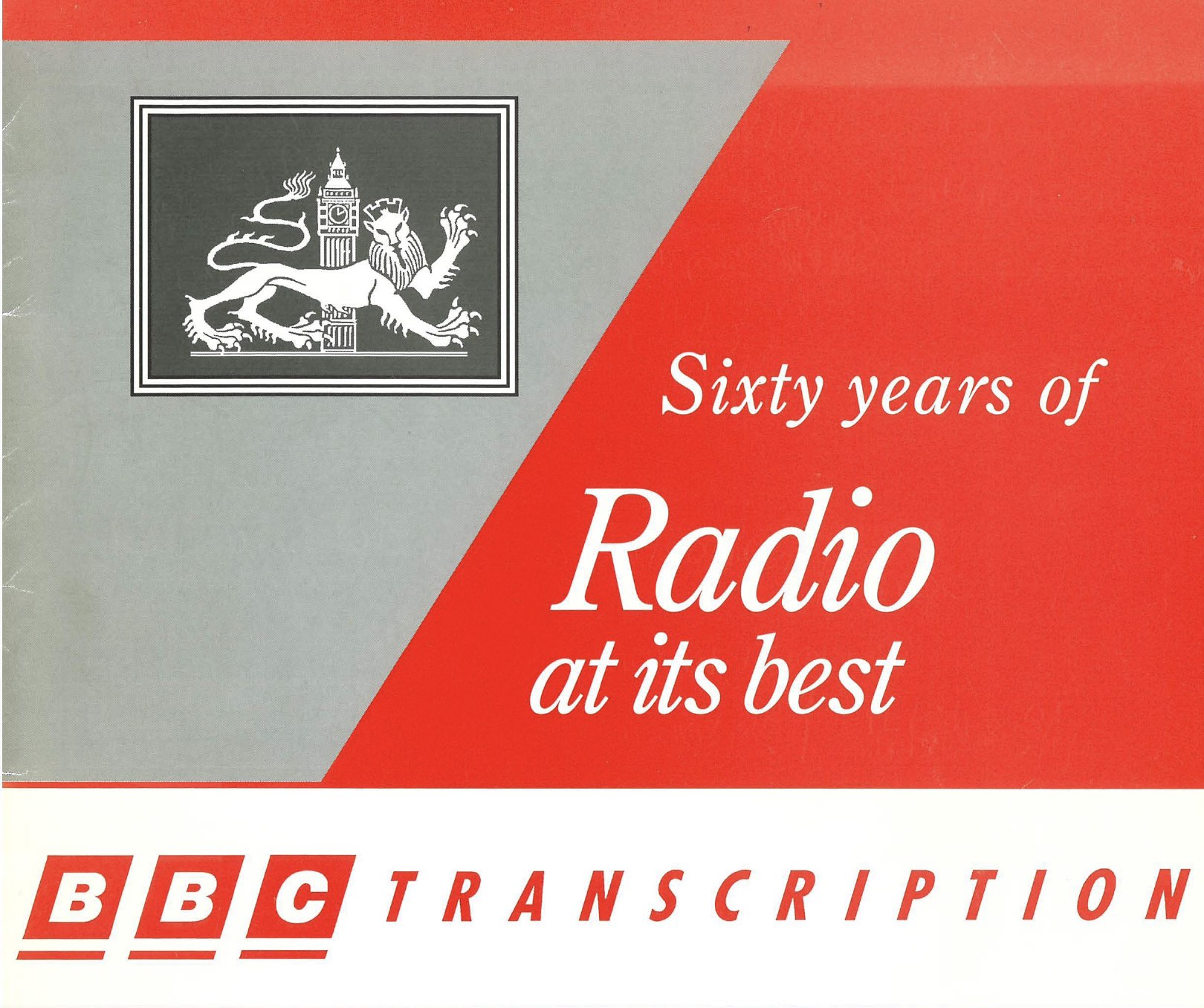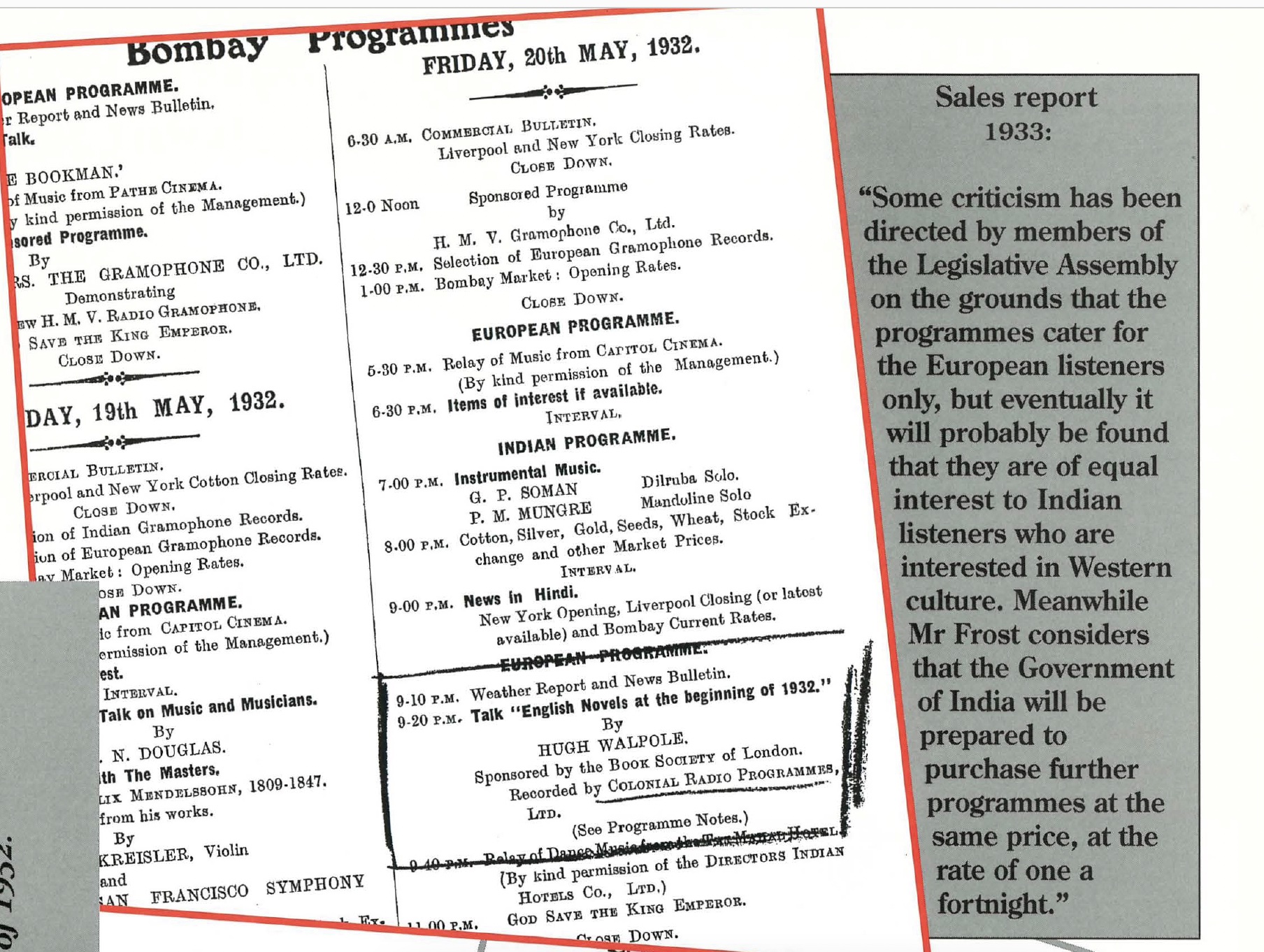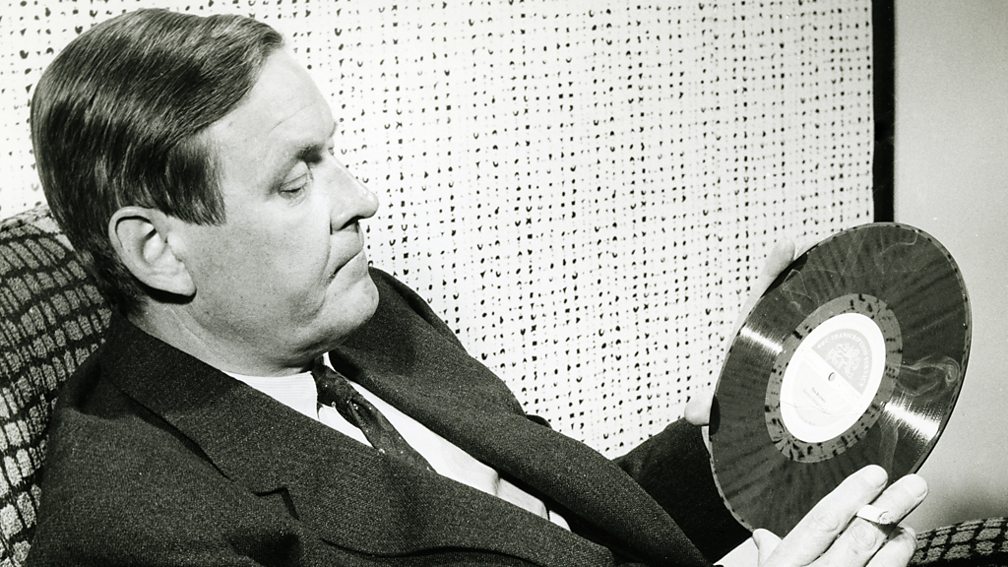BBC Transcription Service
- 12 July 1932 Proposal Approved to set up the BBC Transcription Service
- 21 October 1932 Details were given in the issue of World Radio on B.B.C.'s proposals to supplement with recorded programmes the broadcasting service from the new Empire short-wave transmitter at Daventry.
- 16 November 1932 Mr Malcolm Frost, a member of the staff of the Empire Station Director, begins his World tour, bringing with him 11 specimen programmes.
- 16 6 June 1933 Mr Malcolm Frost returns to London, having gone to all over the globe including SIngapore, Hong Kong and Manila.
- 16 November 1947 The Transcription service continues,and the 78 rpm discs were replaced with 16-inch transcription discs running at 33⅓ rpm.

The idea of recording radio programmes in order to sell to broadcast stations outside of Great Britain, came from an enterprising radio broadcasting enterpreneur named Malcolm Frost.
"I first envisaged the possibility of a British Transcription Service when working as a producer with the National Broadcasting Company in 1929/30. The World Transcription Service had just started up in America in competition with the NBC and Columbia Networks. After further work in the southern hemisphere, I returned to England and put to Sir John Reith the idea of a BBC Transcription Service. I had already been promised strong support from overseas, especially from Sir Ernest Fiske, Chairman of Amalgamated Wireless Australasia limited. I thus borrowed the money to start a company, . Colonial Radio Programmes limited, to produce Transcription programmes for Empire countries. The Dominion broadcasters were in those days short both of money and artistic resources, while Colonial broadcasting was only just beginning. There was therefore an avid demand for high quality syndicated programmes in record form. I received much help in starting the new company from the BBC staff of the day.
With Paul England, Malcolm Frost had set up the private company and was getting the attention of Radio broadcasters overseas:
From the The Sunday Despatch dated September 1931
29 STATIONS
What is perhaps the most spectacular attempt that has yet been made to establish commercial broadcasting in the British Empire has just been started in London. A syndicate of wireless experts, entitled the Colonial Broadcasting Co., Ltd., has been formed with a 110-
The object of the company is to " buy up " broadcasting programmes on 30 stations covering the most populous parts of the British Empire and sell back the programmes to leading commercial trusts.
Already 29 stations, as far apart as the Fiji Islands, Victoria, Ceylon, and British Columbia have joined in a working agreement with the company and the first programmes will be sent out next month.
NEW RECORDING.
The two leading men behind this radio development are Mr. Malcolm A. Frost, who has spent two years travelling throughout the Empire co-ordinating various broadcasting companies in his scheme and Mr. Paul England, the British Broadcasting Corporation radio actor and producer who will be director of the programmes.
Mr. England said yesterday that there was intense competition between American radio interests for the purchase of all available time on Dominion broadcasting stations. Mr. Frost, however, stepped in and reached an agreement with leading Dominion broadcasting stations whereby such programme time was only sold to English interests who, in turn, would be obliged to re-sell to English companies at a cheaper rate than they would sell to American.
Mr. England added that the company had bought an option on a new process of electric recording which enabled them to record the programmes in London and despatch them to the Dominions in the ordinary way.
The idea seemed to have caught on and several stations around the world began to use these pre-recorded broadcasts. One example is this listing in Bombay for a broadcast of a talk by Hugh Walpole on " English Novels at the Beginning of 1932." The broadcast was a recording from the Colonial Radio Programme.

In the middle of this growing interest of broadcasting recorded programmes, Malcolm Frost had earlier sent a letter (November 3, 1931) to then DIrector- General of the BBC, Sir John Reith to see "whether it would be possible to establish a regular liason and co-operate with the British Broadcasting Corporation." Frost lists the disadvantages of his private corporation, (lack of revenue sufficient to maintain a satisfactory broadcasting service, and secondly, lack of artists and material suitable for the microphone), and asks for BBC's support.
Reith's reply on the 6th of November was not completely dismissive, and he suggested that he will connect Frost with the BBC's Foreign Director, as he is the one who is " thoroughly conversant with the broadcasting conditions in allparts of the world and will personally bevery much interested in your company."
After the discussions, John Reith seemed to have initially rejected the idea for the time being, thinking that the Frost's proposition could prejudice the BBC's embryonic plan for an Empire Short-wave service. But within a year, the BBC had changed their mind and suggested to Frost that he could not possibly compete with the Corporation. and therefore asked him to join the Corporation in 1932 to start the BBC Transcription Service.

Proposals were made to set up a new Department at the BBC and was approved on 12 July 1932.
RECORDING OF PROGRAMMES FOR OVERSEAS
On 25th May the Board approved in principle of the establishment of a Department to produce records for Empire distribution. Sir Stephen Tallents gave hearty support to the scheme, and when he goes to Ottawa he would like to be empowered by the Corporation to inform the Dominion Ministers of the creation and intentions of this new Department of the B.B.C.
It is proposed that the same Head of Department should be responsible for both programmes broadcast from the Empire Transmitter and for the recorded programmes. These two varieties of programmes are not alternative but complementary to one another, as stations in the Dominions and set owners are not by any means all equipped for reception from the new Empire Transmitter. The recording work would be done in close co-operation with the present Productions and Outside Broadcast Departments of the Programme Branch.
The Empire Director would have on his staff a Programmes Officer and a liaison Officer (to travel and make contact with Empire stations). Some addition to the present Productions staff would be necessary, but there would be no special Producer set apart for Empire work. It will be helpful to use the recording work as a fresh field of enterprise in which Producers may each serve for some time and gain experience in a new technique.
The projection of the life, art and industry of the Mother Country would be the aim of this recording. Farming, shipping, the countryside, songs, pageants, plays and the more picturesque callings, such as the law, the church and the army and many other things may be recorded. It is envisaged that in its work the Empire Department, at any rate on its recording side, might have the aid of an Honorary Committee which would meet from time to time to make suggestions for suitable programme material. This Committee would be composed of distinguished men and women who have shown themselves aware of, and who have added to, the cultural and artistic heritage of these isles, and who are willing to assist in this work, with possibly representatives of the Dominions and the Empire Marketing Board.
Sir Stephen Tallents was greatly in favour of this suggestion. The sanction of the Board is therefore sought for the initiation of this work and the appointment of the necessary officials.
